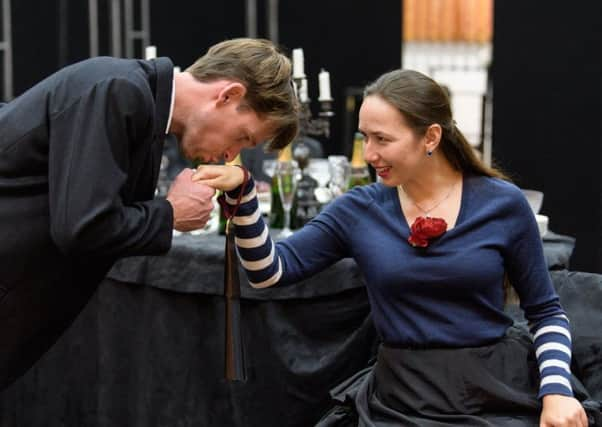Opera preview: Director Marie Lambert promises a fresh take on La traviata for Scottish Opera


If you are Marie Lambert, however, and have a long association with McVicar’s work, both as collaborator and re-interpreter, the question will be altogether different. The French director, currently preparing Scottish Opera’s forthcoming revival of McVicar’s gripping 2008 La traviata, is more interested in the endless possibilities a really good production can pose for the person assigned to re-staging it.
Many will recall MacVicar’s original version, which so very powerfully realised the gritty realism of the piece, setting Verdi’s tale of impossible love between nobleman Alfredo and courtesan Violetta within the grubby late-19th century French bourgeois underground known as the demi-monde.
Advertisement
Hide AdAdvertisement
Hide AdLambert has already taken a fresh look at it, redirecting it in Cardiff for Welsh National Opera in 2012. Reviving it then, as now for Scottish Opera, was never about trying to copy McVicar, she says: “The wonderful thing about David’s work is that there is always scope to build on it.”
“The most uplifting and inspiring thing in rehearsal with David is that his knowledge of the piece is usually very impressive,” she adds. “Having an acting background, he looks at the situation and the characters from within, always putting the human beings, the performers, first. He tries to breathe with them, be with them, listen to them, and as a director, this approach is on the side of the individuals, not imposing a reading, an ideology, a pre-conceived style. It’s like trying to draw out, through those people, the actual truth of the piece. I have a similar acting background, so I relate to this very much.”
Originality comes from giving the performers the freedom they need, she argues. “I’m not trying to get them to imitate any other performer or other production, even though it’s a revival. They are the ones who will perform it, to discover for themselves the truth of the story being told.”
What she will not alter is the period and mood in which McVicar’s original staging is set, the dark demi-monde where men’s wealth was just as likely to buy sex from courtesans as to protect, even educate them. “It’s a very interesting world to recreate each time; to produce all these relationships between the characters.”
Does it help to work with a new cast? This revival, which opens on 19 October in Glasgow, is populated by new young faces, with Russian-Dutch soprano Gulnara Shafigullina as Violetta and Dutch tenor Peter Gijsbertsen as Alfredo.
“Having two young performers as the lovers makes the drama even more tragic,” Lambert believes. “This is about a young woman who is dying well before her time, so to see this through the eyes of a wonderful young singer makes it so much more traumatic. Scottish Opera have put a brilliant cast together for this staging.”
That’s praise indeed from someone who honed her skills as a trainee director in the wings of La Scala in Milan. “Those were interesting times for La Scala,” she recollects. “A troubled period when the company was undergoing some change. But it was so interesting to witness how different the Italian approach to the repertoire is from that of France or the Anglo-Saxon world. Although backward looking – you sense they might benefit from fresh takes on their own repertoire – it was a very instructive experience for me.”
Advertisement
Hide AdAdvertisement
Hide AdLambert’s own take on Verdi’s musical score is unequivocal. “We hear amazing gems, moments of great contrast. The melodies are so powerful, yet he never dwells on them, never indulges himself. He just moves forward with the drama, keeps the story moving all the time.”
Which is just one more reason why Lambert feels so comfortable revisiting and rethinking this production. “We can test the consistency of the ideas each time we restage it,” she says. “And that often results in fresh new ideas. David’s original production sticks to the story and the score in such an honest and true manner.” Lambert’s job is simply to do the same, but different. ■
*La traviata is at the Theatre Royal, Glasgow, from 19 October, with further dates at His Majesty’s Theatre, Aberdeen, Eden Court, Inverness and Festival Theatre, Edinburgh, www.scottishopera.org.ok